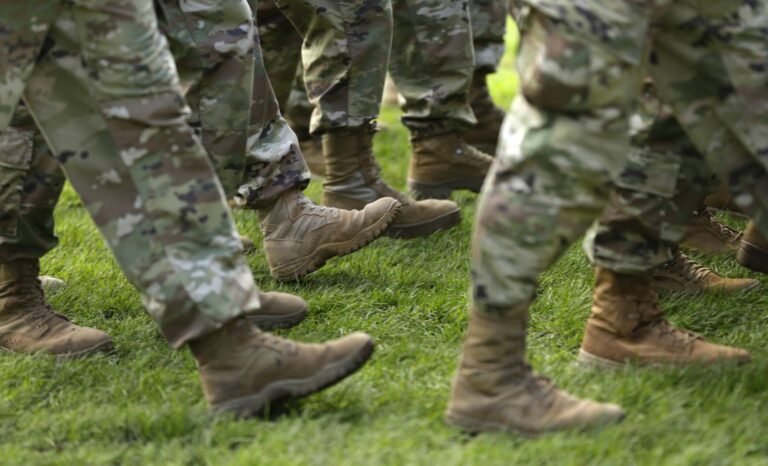The Defense Department has received an anonymous $130 million donation to fund military salaries amid the ongoing government shutdown, but legal experts warn the Pentagon cannot legally use the funds without congressional approval.
President Donald Trump said Thursday that a “friend” offered to cover any shortfall in military pay and had given “a check for $130 million, which was sort of a shortfall.” The White House and the Defense Department did not respond to questions about how that $130 million figure was determined.
On Friday, Chief Pentagon Spokesman Sean Parnell told Federal News Network that the Defense Department has accepted the gift under the “general gift acceptance authority.”
“The donation was made on the condition that it be used to offset the cost of Service members’ salaries and benefits. We are grateful for this donor’s assistance after Democrats opted to withhold pay from troops,” Parnell said.
Troops were at risk of missing their paychecks last week before the Defense Department announced it found roughly $8 billion in unobligated research and development funds from the previous fiscal year to issue mid-month paychecks.
David Super, the Carmack Waterhouse professor of law and economics at Georgetown University Law Center, said while Congress has given the government a broad authority to accept gifts, spending those funds without congressional appropriation would be unconstitutional and a violation of the Antideficiency Act.
“Whether the government is or is not lawfully paying the troops salaries can’t depend on this gift. It has to depend on whether there is another appropriation available for this cost, and I don’t think there is. And if there isn’t, then they can take the gift and hold it, but they can’t spend it without approval of Congress,” Super told Federal News Network.
Similarly to the Pentagon’s legally disputed move last week to redirect $8 billion from its research and development accounts to cover military pay, the use of private funds raises concerns — government agencies can spend federal funds only as appropriated by Congress and spending in the absence of appropriations is constitutionally prohibited.
And while Congress gives the Defense Department limited authority to shift funds between accounts, the Appropriations Act requires that once money is moved, it becomes subject to all the legal limitations of the account it is transferred into — and in this case, the military pay accounts have already expired.
“There’s no funding, there’s no fiscal 2026 military personnel checking accounts to put money into. As the law has always been understood prior to this week, you cannot pay fiscal 2026 personnel bills with fiscal 2025 money and the department doesn’t have any fiscal 2026 money. It is not apparent to me how this is legal,” a former defense official told Federal News Network.
In addition, the department must consult with an ethics office before accepting donations over $10,000 to determine whether the donor is “involved in any claims, procurement actions, litigation, or other particular matters involving the department that must be considered prior to gift acceptance.”
“I am not aware anything like this has ever happened before, and for most countries, paying their own troops is seen as a centerpiece of national security. The notion that people whose identity we don’t know are paying for our troops is humiliating for the country and is also potentially dangerous. Do we know that this person who gave the money really did it from their own funds, or were those funds supplied by a foreign power that may have interest contrary to ours?” Super said.
The White House declined to comment on the donation and directed questions to the Defense and Treasury departments. The Treasury Department did not respond to a request for comment.
Potential gray area
Rich Brady, the Society of Defense Financial Management chief executive officer, said the Pentagon may argue that using the donation would not violate the Antideficiency Act because there is currently no appropriation for military pay due to the shutdown — meaning there is no existing account to “augment.”
“You can’t augment something that doesn’t exist,” Brady said.
And even if the use of donation money violates the Antideficiency Act, the Justice Department has previously determined that federal agencies can accept outside help when necessary to prevent immediate harm.
“While we’re operating in kind of a gray area, it has legal justification for the department. I think the greater issue is, what precedent are you setting by accepting private funds to pay military pay?” Brady said.
Military pay has become one of the most contentious issues of the shutdown in the absence of legislation such as the Pay Our Military Act, which ensured troops were paid during previous shutdowns. House Speaker Mike Johnson (R-La.) refused to bring the Pay Our Troops Act of 2026 to the floor, saying that “the House already did its job, it’s called the continuing resolution.”
Meanwhile, Senate Republicans tried to advance a bill that would ensure troops are paid during the shutdown, but Democrats blocked the measure and instead backed a broader legislation that would guarantee pay for all federal workers.
If you would like to contact this reporter about recent changes in the federal government, please email anastasia.obis@federalnewsnetwork.com or reach out on Signal at (301) 830-2747.
Copyright
© 2025 Federal News Network. All rights reserved. This website is not intended for users located within the European Economic Area.

